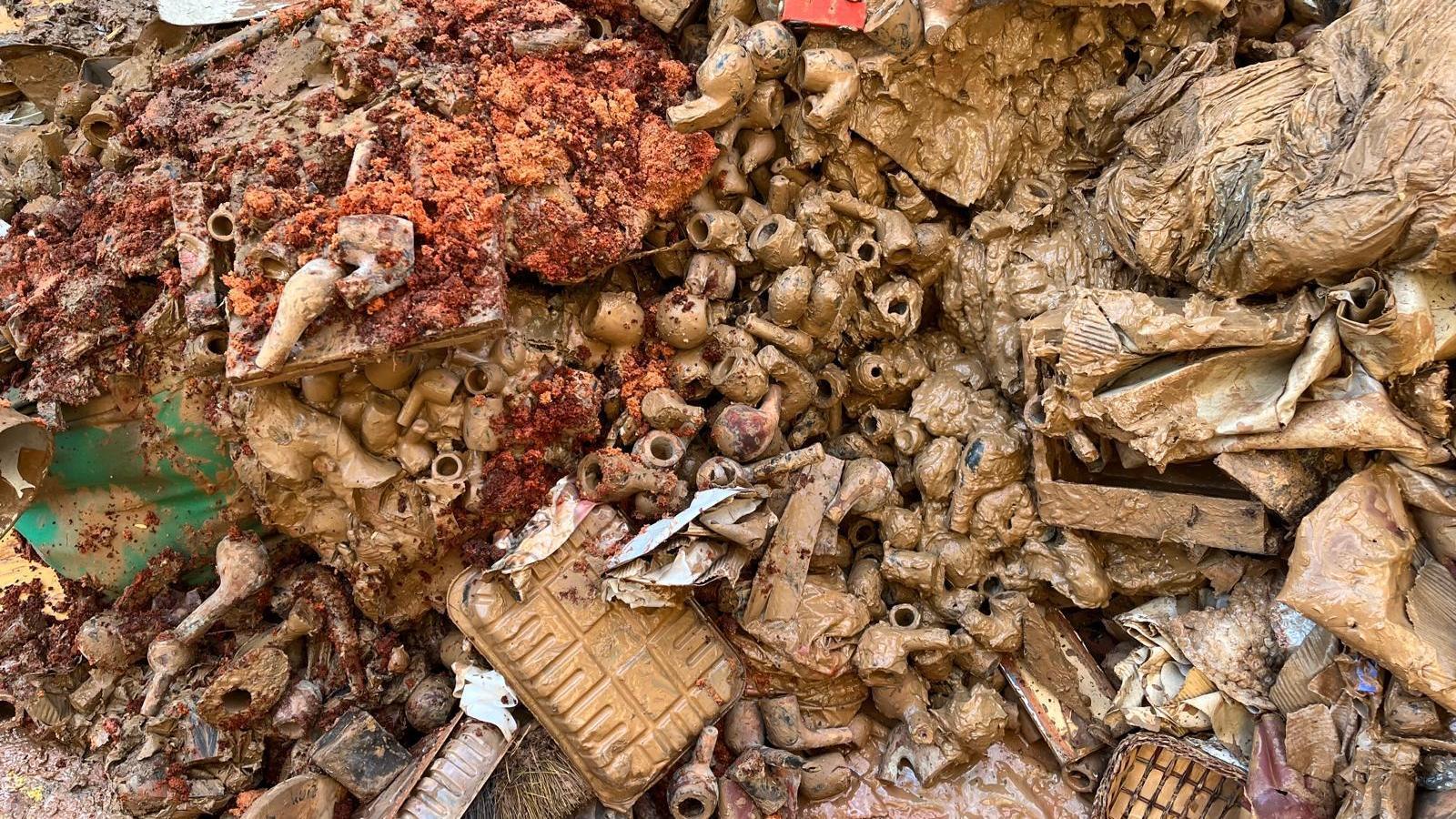The Valencian sunflower seed factory that remains forgotten after the DANA
Bruken Pipes still has not received aid five months after the disaster.

ValenciaFive months have passed since the DANA episode in the Valencian Community, and continuing production has become a challenge for the business community. In Aldaia, in the Horta Sud region, is one of the oldest factories manufacturing artisan smoking pipes, called Bruken Pipes. Founded in 1914, with a history spanning over a hundred years, it lost a piece of its memory on October 29, 2024.
"Up to two meters of muddy water entered. We're still cleaning it up today," explains Sara Navarro, owner and current manager of the factory. For four generations, the 800 m² factory has suffered two floods: one in 1957 and the other in 2024. They eventually recovered from the first, remaining, of course, the only pipe factory operating in Aldaia out of the five that existed; but they still haven't been able to recover from the second. The lack of aid has forced them to race against time to keep their business going.
For now, the Insurance Compensation Consortium claims that more than 50% of those affected by the DANA have been compensated, but for Sara Navarro, this financial support is not forthcoming. "Last week I called to find out how the process was going, and they told me that the files for the premises hadn't been opened yet," she says. She also complains that the amounts awarded are less than the damages suffered, especially for companies belonging to business parks.
In an attempt to find alternative financing, Navarro requested €10,000 from the Spanish government, an allocation based on the company's revenue. "Instead of doing it for the damaged meters, they're doing it this way. With that amount, I don't even have enough to get started. There's a lot of underinsurance," he said.
The complications in reactivating the workforce
After the storm, production was halted, as they couldn't even access the factory. Like many other factories, Bruken Pipes had to apply for an ERTO (Renewed Work Order) to recover, but the time granted has been insufficient. "Today, our workspace is still covered in mud; it's impossible for us to work in these conditions," says Navarro.
As of March 1 of this year, the ERTO (Renewed Work Order) expired; therefore, the company has had to reinstate its workforce. The problem is that production remains halted. "The workers aren't working to produce: they're cleaning the wood, cleaning the corners of the factory, and repairing the machinery. There are people who have been working here for thirty years; I can't fire them; it's inhumane," says the owner.
Affected raw materials
The two meters of muddy water that entered the factory also caused the raw material to deteriorate. "The wood we use is briar, which is a water-resistant material, but the mud darkens it and makes it practically unusable," explains Navarro. The factory not only produces complete handmade pipes, but also individual pieces that are then sold internationally. All of these pieces were covered in mud, causing an economic loss that has not yet been covered.
A report prepared by the Business Confederation of the Valencian Community (CEV) states that 32% of the companies surveyed believe it will take between six months and a year to return to where they were before the DANA, while 10% see it as more complicated and think it will take two years. This is the case of Bruken Pipes, which feels completely abandoned, both by local and state institutions. "It will take a long time to recover. Help is not arriving, and the feeling of hopelessness is growing. We are in a critical situation," Navarro concludes.
